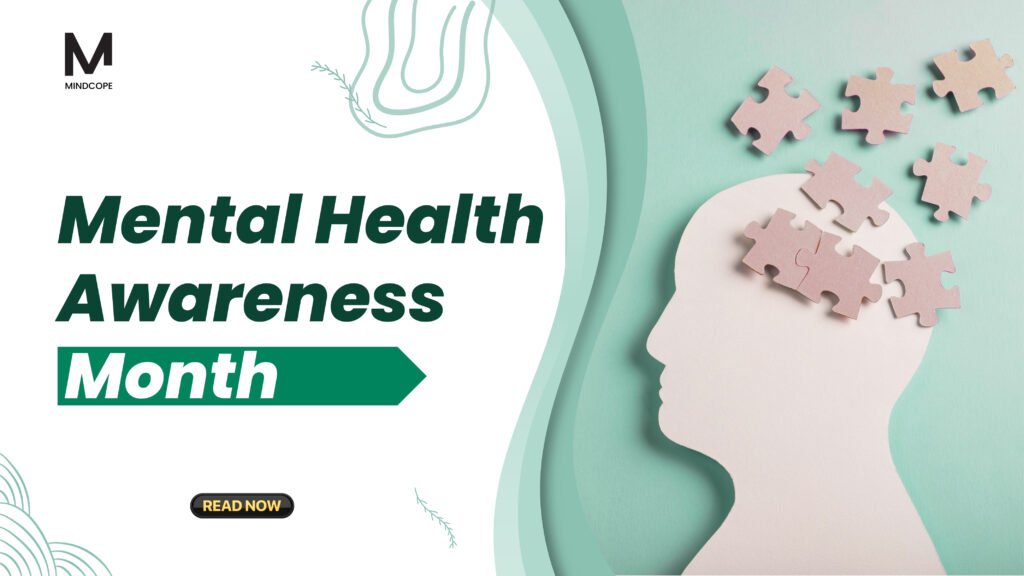An emotional breakdown can be a difficult experience to navigate. It can leave a person feeling overwhelmed, exhausted, and unable to cope with their daily life. Symptoms of an emotional breakdown can vary from person to person, but they often include feelings of intense sadness, worry, anxiety, fear, or nervousness.
The causes of a mental breakdown can be complex and multifaceted. They may be triggered by a traumatic event, such as the death of a loved one, a divorce, or a serious illness. It is important to seek help if you are experiencing symptoms of an emotional breakdown, as early intervention can lead to better outcomes. Let’s discuss it in detail.
Table of Contents
Recognising Symptoms and Signs

A mental breakdown, also known as an emotional breakdown, is a state of severe emotional distress that can leave a person feeling unable to function normally. Recognising the symptoms and signs of a breakdown is crucial to getting the right help and support.
General Symptoms of an Emotional Breakdown
The symptoms of an emotional breakdown can vary from person to person, but there are some common signs to look out for. According to the NHS, these may include:
- Feeling overwhelmed and unable to cope
- Persistent feelings of sadness, anxiety, or hopelessness
- Difficulty concentrating or making decisions
- Changes in appetite and sleep patterns
- Loss of interest in hobbies or activities previously enjoyed
- Irritability or restlessness
- Physical symptoms such as headaches, stomach aches, or muscle tension
If you or someone you know is experiencing any of these symptoms, it may be a sign of a mental breakdown and seeking professional help is recommended.
Signs Specific to Women
Women are more likely to experience an emotional breakdown than men. This is due in part to the fact that women tend to face more stressors than men, such as societal expectations, gender roles, and discrimination.
Signs of a breakdown in a woman can include:
- Feeling overwhelmed by multiple roles and responsibilities
- Difficulty expressing emotions or feeling emotionally numb
- Changes in menstrual cycle or sexual desire
- Increased sensitivity to stress
- Guilt and feeling responsible for others’ problems
- Self-criticism and negative self-talk
Women may also experience physical symptoms such as headaches, stomach aches, and muscle tension. If you or someone you know is experiencing any of these signs, seeking professional help is recommended.
Understanding Causes
Mental breakdowns can be caused by a variety of factors, including both external and internal stressors. Some of the most common causes of mental breakdowns include:
Common Causes of Mental Breakdowns
- Stressful life events: Major life changes such as a divorce, job loss, or the death of a loved one can trigger a mental breakdown. High levels of stress at work or school can also contribute to a breakdown.
- Trauma: Experiencing a traumatic event such as physical or emotional abuse, a natural disaster, or a serious accident can lead to a breakdown.
- Genetics: Some people may be more predisposed to mental health conditions due to their genetic makeup.
- Chemical imbalances: Imbalances in neurotransmitters such as serotonin, dopamine, and norepinephrine can contribute to mental health issues.
Causes of Mental Breakdown among Students
Students are particularly vulnerable to mental breakdowns due to the unique stresses they face. Some of the most common causes of mental breakdown among students include:
- Academic pressure: The pressure to succeed academically can be overwhelming for some students, leading to mental health issues.
- Financial stress: Many students struggle to make ends meet, which can lead to anxiety and depression.
- Social isolation: The transition to college or university can be difficult for some students, leading to feelings of loneliness and isolation.
- Substance abuse: Some students turn to drugs or alcohol as a way to cope with stress, which can lead to addiction and mental health issues.
Responding to a Breakdown

When someone is experiencing a mental breakdown, it is important to respond appropriately in order to provide immediate assistance and long-term support. This section will outline some immediate actions that can be taken and long-term support that can be provided.
Immediate Actions
Identifying the signs and symptoms is the first step in responding to a breakdown. It is important to approach the person with empathy and understanding, as a breakdown can be distressing and overwhelming.
The first signs of a mental breakdown include feelings of intense sadness, worry, anxiety, fear, or nervousness, as well as low energy and fatigue and a loss of interest in hobbies or activities. If you suspect that someone is experiencing a breakdown, it is important to encourage them to seek professional help.
Providing a safe and supportive environment is important in the immediate aftermath of a breakdown. This may involve removing the person from any stressful or triggering situations and providing them with a calm and quiet space to rest. Encouraging the person to engage in self-care activities, such as taking a bath or listening to calming music, can also be helpful.
Long-Term Support
In addition to providing immediate assistance, it is important to provide long-term support to help the person recover from their breakdown. This may involve connecting them with mental health professionals, such as therapists or psychiatrists, who can provide ongoing treatment and support.
It is also important to encourage the person to engage in self-care activities and make positive lifestyle changes. This may involve adopting healthy habits, such as getting regular exercise, eating a balanced diet, and getting enough sleep. Encouraging the person to engage in activities they enjoy and spend time with supportive friends and family members can also be helpful.
In some cases, a mental breakdown may be caused by external factors, such as stress at work or relationship problems. In these cases, it may be necessary to change the person’s environment or provide them with additional support, such as counselling or therapy.
Overall, responding to a breakdown involves providing both immediate assistance and long-term support. By identifying the signs and symptoms of a breakdown, providing a safe and supportive environment, and connecting the person with mental health professionals and other sources of support, it is possible to help them recover and regain their mental wellbeing.
Prevention and Management
Preventing a mental breakdown can be challenging, but there are steps that can be taken to manage the risk factors. It is important to recognise the warning signs and seek help early on.
Lifestyle Changes
Making lifestyle changes can help reduce the risk of a mental breakdown. These changes include:
- Getting enough sleep
- Eating a healthy, balanced diet
- Exercising regularly
- Avoiding drugs and alcohol
Seeking Support
Talking to someone about your feelings can help prevent a mental breakdown. It is important to seek support from friends, family, or a mental health professional. There are many resources available, including helplines and support groups.
Managing Stress
Stress can be a major trigger for a mental breakdown. Learning how to manage stress can help reduce the risk of a breakdown. This can include:
- Taking breaks and practicing relaxation techniques such as meditation or yoga
- Prioritising tasks and setting realistic goals
- Learning to say no to commitments that are too overwhelming
- Taking time off work or school if necessary
Addressing Underlying Issues
Addressing underlying issues such as trauma, anxiety, or depression can help prevent a mental breakdown. Seeking professional help can provide the tools and support needed to manage these issues.
Seeking Help Early On
It is important to seek help early on if you are experiencing symptoms of a mental breakdown. This can include talking to a mental health professional, seeking support from friends and family, or contacting a helpline. Early intervention can help prevent a breakdown and improve overall mental health.
In addition to the above steps, it is important to identify and address the underlying causes of a mental breakdown. This may include addressing stressors such as work or academic pressures, relationship issues, or financial difficulties. For students, seeking support from academic advisors or counselling services can be helpful in managing stress that causes of mental breakdown among students.
Overall, taking steps to manage stress, seek support, and address underlying issues can help prevent a mental breakdown. Early intervention is key in managing symptoms and improving overall mental health.
Depression Headaches Symptoms| Depression Headache Treatment
Frequently Asked Questions
What are the indicators of an emotional collapse?
An emotional breakdown, also known as a nervous or mental breakdown, can cause a range of symptoms, including extreme sadness, worry, anxiety, fear, or nervousness.
Other indicators of an emotional collapse may include:
-A feeling of being on edge
-An extreme sense of doom
-Low energy and fatigue
-Feelings of intense guilt, worthlessness, powerlessness, or shame
What steps should one take to recover from a breakdown?
Recovering from an emotional breakdown can be a challenging process that requires patience and self-care. Some steps that can help one recover from a breakdown may include:
-Seeking support from loved ones or a mental health professional
-Taking time off from work or other responsibilities to rest and recharge
-Engaging in self-care activities such as exercise, meditation, or journaling
-Identifying and addressing the underlying causes of the breakdown
What is the typical duration of a mental breakdown?
The duration of a mental breakdown can vary depending on the individual and the severity of the symptoms. According to the National Health Service (the symptoms of a breakdown NHS), some people may experience a breakdown that lasts for a few days or weeks, while others may require more extended periods of recovery.
How can one effectively manage an emotional breakdown?
Managing an emotional breakdown can involve a combination of self-care, support from loved ones, and professional help. According to Healthline, some strategies that can help manage an emotional breakdown may include:
-Practicing relaxation techniques such as deep breathing or progressive muscle relaxation
-Engaging in regular exercise or physical activity
-Seeking support from a mental health professional
-Identifying and addressing the underlying causes of the breakdown
What are the common causes behind a mental collapse?
Mental breakdowns can be caused by a range of factors, including stress, trauma, and underlying mental health conditions. Some common causes of a mental breakdown may include:
-High levels of stress at work or home
-Traumatic events such as a death in the family or a relationship breakup
-Underlying mental health conditions such as depression or anxiety
What are the first signs of a mental breakdown?
The first signs of a mental breakdown can vary depending on the individual and the underlying causes of the breakdown. Some initial warning signs of a mental breakdown may include:
-Withdrawal from social activities or responsibilities
-Changes in sleep patterns or appetite
-Feelings of hopelessness or worthlessness
-Increased use of drugs or alcohol





